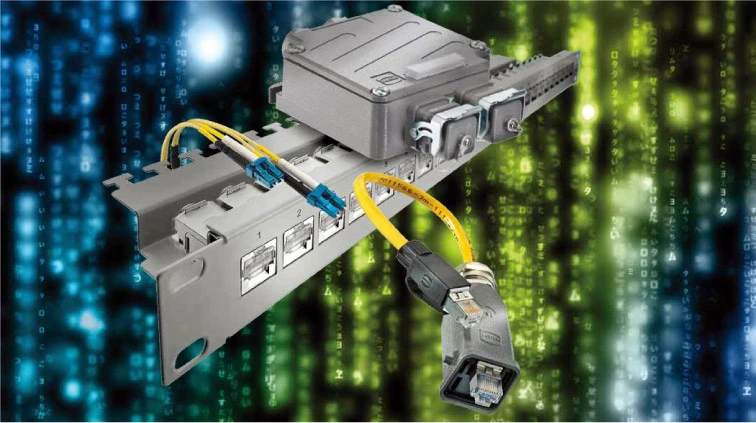Smart plugs
HARTING is working on the future of the factory
The family enterprise HARTING recently opened a branch in Adlershof – here, developers are working on the future of the factory, Industry 4.0. It will make manufacturing more efficient, more flexible, faster and more individual. HARTING as a full-line manufacturer has the ideal prerequisites to shape progress in technology.
The former world market leader for cigarette vending machines is now the first address for electrical connectors and is evolving into a system provider for the industry 4.0 – intelligent, web-based manufacturing: The HARTING Technology Group from Espelkamp near Minden has future markets firmly set in its sights. It is thus unsurprising that its software development plays an increasingly great role and, last year, the HARTING IT Software Development GmbH & Co. KG opened up a branch of the Technology Group in Adlershof.
From here, the road to the future of fully automatized manufacturing is being paved by joining together the company’s expertise in hardware and software. “We actually produce components, but the software-driven industry 4.0 is of strategic importance to us, because it will be one of the major future trends,” explains Claus Hilger, manager of the HARTING IT company.
It is not a distant scenario anymore that, in the factory 4.0, interconnected machines and products communicate with each other and work in a largely self-managed way. Inconspicuous connectors for the transmission of energy and data will play a major role in the process: “We will upgrade plugs in a way that will enable them, for example, to deliver information on the current energy usage of a device, “ Hilger explains. This information is fed into energy management which makes sure that machines, for example, work at full capacity at night, when electricity is cheaper.
Another cornerstone of the family company’s strategy is to develop stand-alone products including standard software for the industry 4.0 – primarily smart readers, network components and RFID-transponders; the latter make objects identifiable and give them “a memory”, as Hilger puts it. This is what they are working on in Adlershof. First prototypes have already been tested. The electrical engineering company itself uses its technology not least to make its own processes better and more energy-efficient. “Soon highly individualised and autonomous manufacturing will be possible, because machines and processes can be flexibly customised,“ says the 56-year-old. This is a vision which will only become reality if there are enough smart people working towards it.
For this purpose, the company with its 4,000 employees annually awards four national scholarships, the Deutschlandstipendium. This sponsorship initiative launched by the Federal Ministry for Education and Research will support young scientists with 300 euro a month, half of which comes from federal funds. “The scholarship helps students to focus completely on studying,“ says human resource executive Sabine Wittenbrink- Daut. And Claus Hilger adds: “Industry 4.0 will surely increase demand for computer scientists significantly. By way of this scholarship, we are trying to approach talented young scholars early on.”
By Chris Löwer for Adlershof Special
